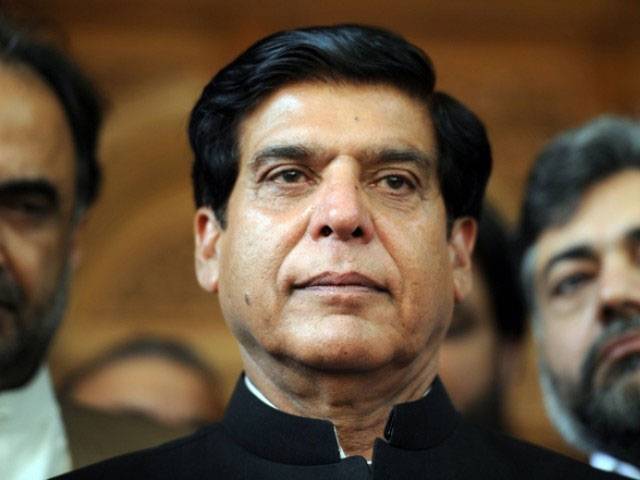LAHORE - Prime Minister Raja Pervez Ashraf on Tuesday said that bilateral trade and not aid was the basis of Pak-US relations. “Today’s Dairy Industry Conference is important because it demonstrates that US and Pakistan are working to create an economic partnership based on trade and not just aid”, he remarked while addressing the conference.
The US Ambassador Richard Olson also spoke at the closing ceremony of conference and highlighted US-Pakistan cooperation to help dairy farmers grow their businesses.
The Prime Minister said that his government attached high priority to the development of livestock and was cognizant of its role in rural development.
“The role of livestock sector in the economic development of the country can be gauged from the fact that nearly eight million families are involved in livestock raising and deriving more than 35pc income from livestock”, he observed, adding, “During this year livestock contributed 11.6 per cent to national Gross Domestic Product”.
The premier said that the share of livestock in the national economy was higher than the total contribution of agricultural crops produced in the country which was 10.9 per cent.
In Pakistan, he added, livestock consisted of cows, buffalos and goats that provide milk, hides, meat and other raw materials for the local market. Pakistan is 3rd largest herd size in the world, numbering over 63 million animals, he added. Despite this huge herd size, the average per household animal holding is around 3, which makes the country’s dairy farming structure highly fragmented.
Raja said Pakistan was the 5th largest producer of milk around the world. Milk, with an estimated 47.95 million tons of production per annum, constitutes the single largest component in the livestock. At present, he said, the daily milk produce by a Pakistani cattle averages between 4 to 5 liters which is 6 to 8 times less than the production of a similar animal in the developed world.
According to him, this state of affairs is mainly due to outdated milk procurement and distribution methods followed by dairy farmers. Milk productivity faces constraints from the low genetic potential of local milk producing animals, he said.
The premier said that establishment of a separate Ministry of National Food Security and Research reflected government’s resolve to mainstream the food security agenda into public policy.
He said it was important that the focus was placed on “small dairy farmers” by providing them technical training in efficient milk production and management practices for increase in milk yields and milk quality. Enabling these small dairy farmers, access to quality input supplies and veterinary services, milk collection centers and market channels would improve their profit margins thus contributing towards an improved quality of life.
“We acknowledge the contributions of USAID and its services towards the economic growth of Pakistan. During the unprecedented floods that struck Pakistan in 2010, the Agency partnered with the government of Pakistan to restore livelihoods of flood affectees, including livelihood recovery of 22,549 small dairy farmers in Sindh”, he observed. Speaking on the occasion, the US Ambassador said that Pakistan was one of the largest dairy producers in the world, and the United States was committed to working with dairy farmers to help them protect their livestock from disease, improve the quality of their products and increase their profits.
Ambassador Olson highlighted two US assistance programmes designed to achieve those objectives: the Entrepreneurs Project and the Dairy Project. The first offers workshops to help Pakistani dairy farmers sharpen their business skills, develop new products and services and raise their incomes. The Dairy Project is a public-private partnership with Nestle Pakistan and the Dairy and Rural Development Foundation that has trained 9,000 dairy farmers and 5,000 small agribusinesses to help them protect their livestock, improve the quality of their products and increase revenue.
“Since 2010, more than 22,000 dairy farmers affected by the devastating floods have been able to double their incomes through the US-funded Entrepreneurs Project,” said Ambassador Olson at the conference.
He said that through other initiatives that support the agricultural sector, the United States has trained more than 750 veterinarians and lab technicians to prevent the spread of the deadly foot and mouth virus and provided vaccinations to protect 110,000 dairy cows, buffalo and yaks from the disease.
Friday, April 19, 2024
Govt attaches high priority to livestock uplift, says PM

China's EV tech offers opportunity for Pakistani auto industry
9:27 AM | April 19, 2024
PM calls for reforms to reduce circular debt
April 19, 2024
Pakistan, Turkiye to expand defence ties
April 19, 2024
20pc Discos employees involved in power theft: Minister
April 19, 2024
Five govt officials shot dead in D I Khan
April 19, 2024
Hepatitis Challenge
April 18, 2024
IMF Predictions
April 18, 2024
Wheat War
April 18, 2024
Rail Revival
April 17, 2024
Addressing Climate Change
April 17, 2024
Justice denied
April 18, 2024
AI dilemmas unveiled
April 18, 2024
Tax tangle
April 18, 2024
Workforce inequality
April 17, 2024
New partnerships
April 17, 2024
ePaper - Nawaiwaqt
Advertisement
Nawaiwaqt Group | Copyright © 2024





